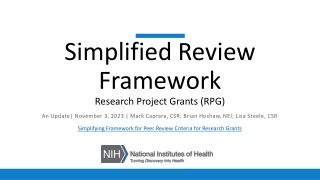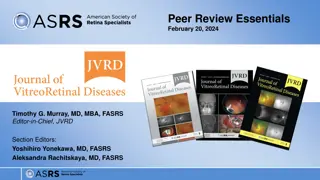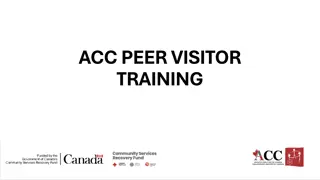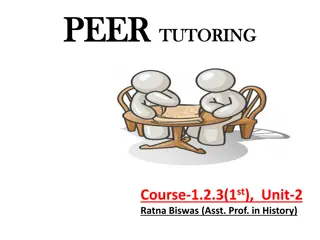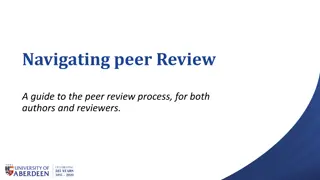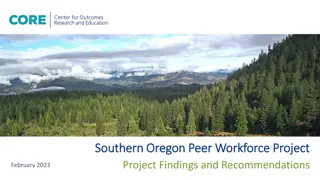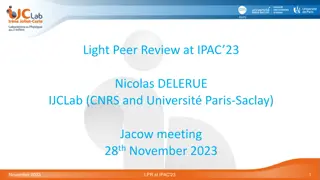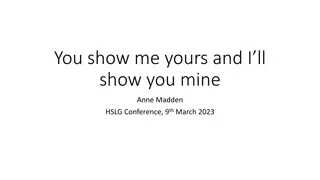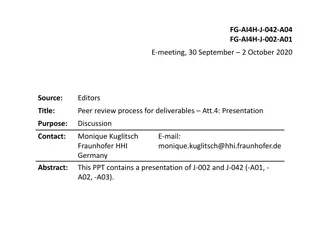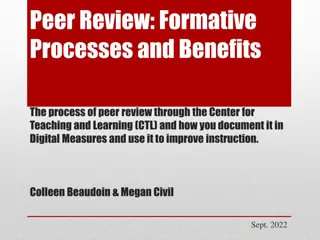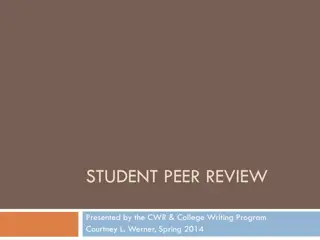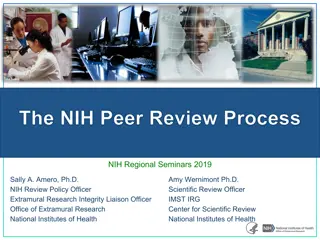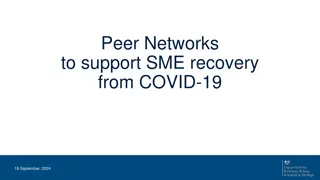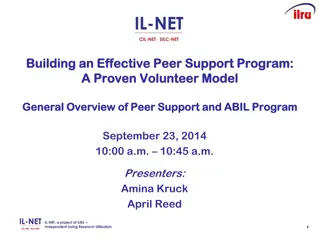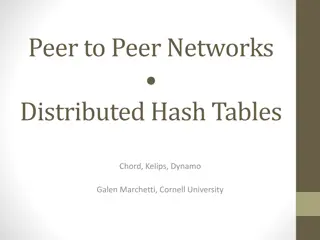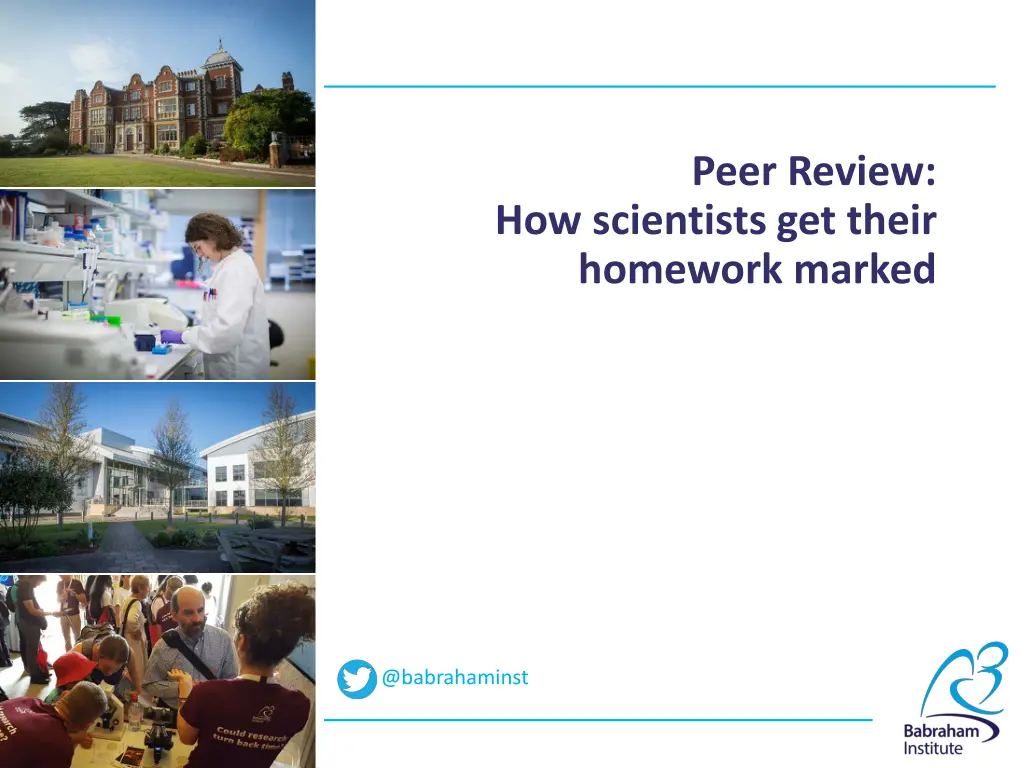
Understanding Peer Review Process in Scientific Research
Explore how scientists get their work marked through peer review, the importance of peer review in ensuring accuracy and validity in research, and the role of peers in the publication process. Learn how peer review helps maintain the quality of scientific publications and why it is crucial for accurate reporting in the media.
Download Presentation

Please find below an Image/Link to download the presentation.
The content on the website is provided AS IS for your information and personal use only. It may not be sold, licensed, or shared on other websites without obtaining consent from the author. If you encounter any issues during the download, it is possible that the publisher has removed the file from their server.
You are allowed to download the files provided on this website for personal or commercial use, subject to the condition that they are used lawfully. All files are the property of their respective owners.
The content on the website is provided AS IS for your information and personal use only. It may not be sold, licensed, or shared on other websites without obtaining consent from the author.
E N D
Presentation Transcript
Peer Review: How scientists get their homework marked @babrahaminst
Learning Outcomes Measure/record experimental data and draw a conclusion from a drawn graph All students will: Be able to explain the concept of peer review Most students will: Explain why reports of scientific developments in the popular media are not subject to peer review and may be oversimplified, inaccurate or biased. Some students will: Key words Peer, publication, journal, hypothesis
How does science make it into school? Eventually we have a good idea of what is happening, and the science ends up in text books Lots of experiments are done, until there is enough data to prove a hypothesis The experiments are written up and published in a journal.
How do we write up experiments? You Us Prediction Hypothesis } Background reading and research Method Method Results Results Conclusion Conclusion Marked by teacher ?
What is the difference? If our research findings have never been published before, how can we be sure that: Our experiments were run correctly Our data is correct Our conclusions are valid We use the PEER REVIEW process
What is peer review? Who are your peers? People who are in similar circumstances to you - in your case other people of the same age and level of schooling. In scientific research, your peers are other scientists who may be in the same research area. Before a paper is published it is sent to other researchers in the same area of science They have to agree that the experiments and conclusions are valid for it to be published.
Your turn! Imagine you are important scientists A world-famous journal has sent you a scientific paper to review. They would like your comments on the paper, and they would like to know whether you think it should be published or not.
Some questions Does the fact that a drug is good at killing bacteria mean it will be a good treatment for humans? What would you do if you were given this paper to review and you had just made a similar discovery that you knew would: make you famous for finding a cure earn you lots of money by selling the rights to a pharmaceutical company
So what have we learned? Scientists do experiments, write up their results as a paper and submit it to a journal. The paper then gets checked by a process called Peer Review. Reviewers (scientists in the same field) check for errors, and that the research is good science.

